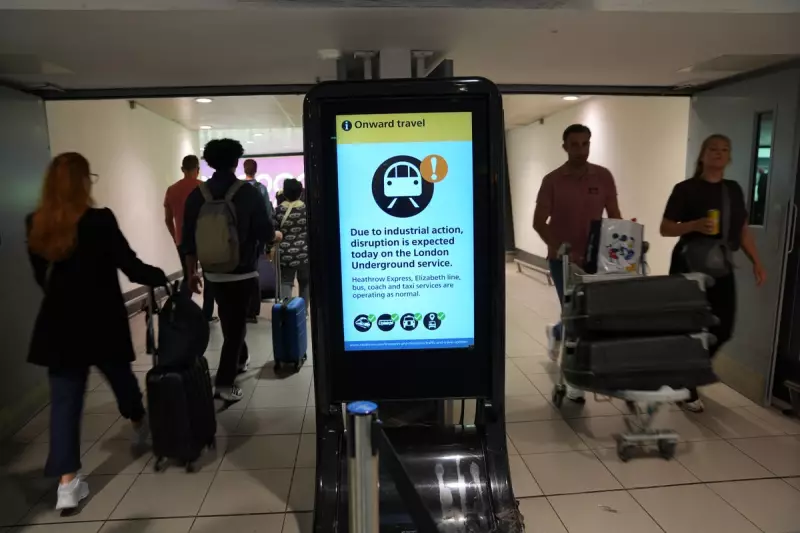
London has been plunged into transport chaos as a major 24-hour strike by the Rail, Maritime and Transport (RMT) union brings the Underground network to a grinding halt.
The walkout, which began on Sunday evening and will continue until Monday evening, is causing severe disruption for millions of commuters and is expected to have a significant impact on the capital's economy.
Root of the Dispute
The industrial action centres on a dispute over working conditions and travel concessions. The RMT union has accused Transport for London (TfL) of failing to address key concerns raised by its members.
Union representatives have stated that the strike is a last resort after negotiations failed to yield a satisfactory agreement. They argue that the current proposals from TfL undermine staff rights and conditions.
Network Grinds to a Halt
Transport for London has issued a severe disruption warning, confirming that little to no service is expected on the entire Tube network for the duration of the strike. While some above-ground services like the Elizabeth Line, London Overground, and buses are operating, they are expected to be extremely crowded.
Commuters are being urged to work from home if possible or allow significant extra time for their journeys, with many key stations expected to be closed or operating at limited capacity.
Mayor's Response and Economic Impact
London Mayor Sadiq Khan has expressed his disappointment at the decision to strike, emphasising the disruption it causes for Londoners and the potential damage to the city's economy as people struggle to get to work.
This strike action represents one of the most significant disruptions to the London transport network in recent months and highlights the ongoing tensions between transport unions and management over pay and conditions in the post-pandemic landscape.





